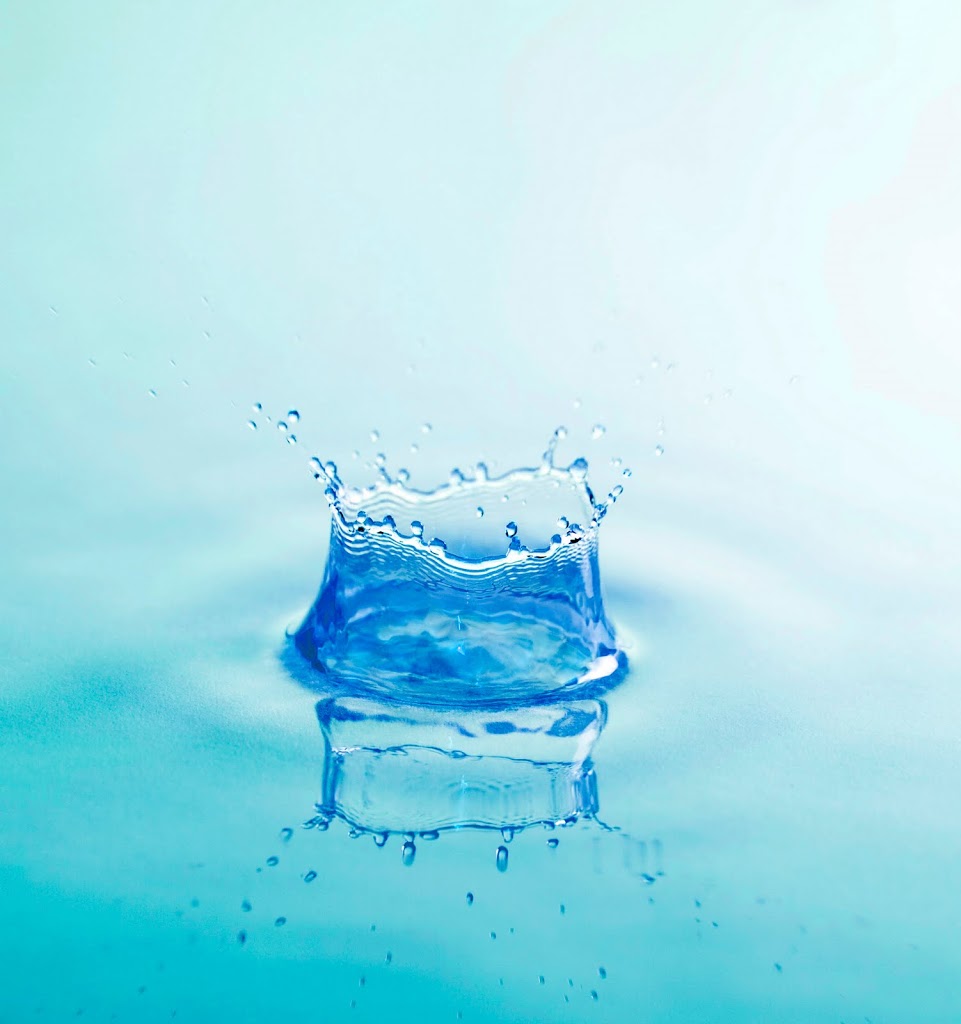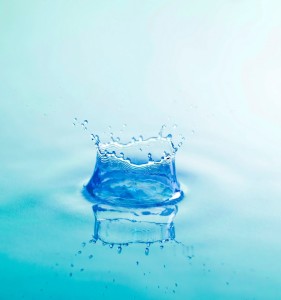by theglamscientist | | beauty, beauty business, business, consulting, cosmetic chemists, cosmetics, cosmetics industry, Glam Life |
At some point in our lives, I think we’ve all been drawn in to a fictional tv show; whether your taste is Scandal, Sex and the City or Glee. Have you ever considered the thought, research and effort that go into the development of your favorite characters? I mean, when you really think about it, those characters are not REAL. They don’t live in the real world, yet they have a personality, a culture, values (or not), careers, friends, taste in food and clothes. Everything that makes you and I human is built into each fictional character so that they feel real to us. We are able to develop a connection to fictional characters because the writer took care in developing a complete character.
*Stay with me, I’m going somewhere with this.*
But they don’t stop there. Once the characters are developed and the scripts are written, the actors get to know the characters. My fiancé happens to be an actor and I was once lucky enough to sit in on a character analysis. It was one of the most intriguing things I’ve ever witnessed. I watched as the writer/director posed questions and scenarios to the actors who responded as if they themselves were really the character. Actors really become their characters on set.
So how does this apply to your beauty brand? Well, your brand needs a personality, it needs values, it needs a culture. Your customers should be able to get to know your brand like they get to know their favorite tv characters. Is your brand classic? Or does she respond to trends? What kind of customer would your brand make friends with? Where does she shop? What does she eat? Does your brand feel connected to the community or is she more drawn to a specific audience? Get to know your brand BEFORE you introduce her to the world. Give the world something to connect and hold on to. That’s the first step to creating a loyal brand following.
What methods have you used in developing a personality for your beauty brand?
Here’s to the Glam Life!
by theglamscientist | | beauty, beauty business, business, consulting, cosmetic chemists, cosmetic science, cosmetics, cosmetics industry, Glam Life |
Before you dig into this post, take a minute to ponder these three words- Best, Popular, Profitable. What comes to mind when you read each of them? *jot that down*
What is your main goal for your beauty brand? Do you want to be the best to ever do it? Are you seeking popularity? Or would you much rather be profitable? You can have it all, but you should start with what matters most and retrofit the rest.
I believe if I do my best work, it will earn me profitability because of the quality and value I would pour out to the clients I serve. Doing so creates loyalty and word of mouth marketing. When you’re creating something of value for your tribe, you’ll gain popularity. Let’s face it, all of us want to be known for something whether we’re willing to admit it or not. There’s nothing wrong with wanting to be popular, especially for something you give your all to.
Consider these elements when you’re sitting at the drawing board planning your beauty brand. Give your best to each point in the process. Select superb formulations, research and implement the most effective marketing strategies for your product type, create a unique and compelling brand culture and match all of your visuals and copy to that culture. Your packaging, logo, website, presentation of product claims and promo materials should all be a reflection of your brand’s best work. If you do, the profitability and popularity will fall in place. It’s quite a glamorous cycle!
Here’s to the Glam Life!
by theglamscientist | | beauty, beauty business, business, color cosmetics, consulting, cosmetic chemists, cosmetics, cosmetics industry, esteem, Glam Life, startup advice |
There’s just no way around it. If you want to succeed, advance, learn, be a leader; you must read. I’m willing to bet if you interviewed the top beauty brand owners and leaders you’d find they have a list of reading material that played a role in their success. Someone like you that is on a quest for success and advancement in the cosmetic industry has to be intentional about your reading. Not just any book will do. I like to have an arsenal of reading material so that I know or am learning a little bit about everything that applies to my direction in life. I always set business and personal goals for the year. I use those goals to guide my reading. Not only should you select books that matter to you right now, but you have to read with an open, active, critical and investigative mind. It’s not so much about what’s written on the page as it is what those words spark inside of you. Pay careful attention to the sparks.
So what should you be reading?
The key to a successful business is to have a healthy personal life, a productive business life and to be knowledgeable in subjects that affect your beauty business.
I recommend reading self help books and/or blogs that build and maintain your self esteem. This kind of reading will teach you what to say when you talk to yourself and how to protect yourself from negativity. You can also look for blogs written by life coaches and lifestyle brands to help you maintain an inspired, motivated and positive outlook.
I also believe every business owner or aspiring business owner will benefit from reading marketing and branding material. Find books whose title and description speaks to you and where you are right now. Look for bloggers whose voice/style is reflective of yourself or someone you can see yourself being friends with. This will be easy reading for you and these nuggets can be dropped in your inbox daily. I personally like dry humor, a touch of sarcasm, or high energy. Marketing bloggers are really good at that.
Finally, you’ll need to read material that applies directly to your industry. You’re reading this blog so I’m willing to bet cosmetics is your industry of choice. Luckily, our industry has a lot of trade publications to keep you in the know. I’ll list my favorites below. Being apart of this industry means you get to read fun, girly stuff, too. Your favorite fashion/lifestyle magazines will all touch on beauty in every issue. What you do with the information will determine if it is golden or not. Here’s a TGS secret… It’s ALWAYS golden. *wink*
My favorite trade publications:
GCI Magazine
Cosmetics and Toiletries
HAPPI
What are you reading right now? Drop your favorite blogs and book titles in the comments for all of us to enjoy.
Here’s to the Glam Life!

by theglamscientist | | business, competition, cosmetics, cosmetics industry, startup advice |

It is inevitable, every business has competition. There’s always going to be another company that offers the same or similar products/services as your own. As the saying goes– There’s nothing new under the sun. In order to grow a strong, successful cosmetic company, you must familiarize yourself with the competition and learn how to compete. Most people understand the concept of competition, but not everyone knows how to compete effectively.
The biggest mistake I see startups make is trying to make a product too much like one that already exists. What I find fascinating is that usually companies start out with a very unique idea yet end up with a product that is not equally unique. I know exactly how it happens because I’ve seen it a time or two. In the midst of studying the competition and seeing what it is that people like about their products, you start to convince yourself that consumers will only find use for products that are just like the ones that already exist. Oh ye of little faith! Give consumers a little credit… they like what they like until something comes along that is…. drumroll…. BETTER. Understand that an existing company has already carved out it’s fan base. There are consumers who use those products loyally because of product performance and the relationship that has been built over time. To introduce a product to the marketplace that virtually already exists is a huge risk. It’s challenging enough to convince consumers to give your product a try so when they do try it, give them a reason to keep coming back. The key to being able to compete and (ultimately) win, is to stand out. Below are my 5 tips to winning in business:
1. Decide what you want to sell and who you want to compete with.
2. Get to know what your competition has done to find success.
3. Improve on what your competition has to offer. **When I say improve on the competition, I don’t mean take their exact product and add a little something to it. I mean study the benefits and results their product. Find out what their fans love about their product and then develop your own product that tops the competition.
4. Customize your product/brand to suit YOU ie your personality, style, thought processes, etc.
5a. Market it.
5b. Market it some more. Branding and visibility go a loooooonnnnng way in getting your product(s) the attention they deserve.
If you follow my advice, you’ll be well on your way to thriving business.
Here’s to the Glam Life!

by theglamscientist | | Cosmetic Ingredients Review, cosmetics, hair conditioning, moisturizer, moisturizing, occlusive agents, skin conditioning, water |

A few weeks ago, I saw a tweet that baffled me a bit. Someone (I don’t remember who) was completely annoyed that the top ingredient in some product was water. My first thought was “Whoa, what’s wrong with water?!” More recently, I read about a product line whose claim to fame is “water-free”. From a formulator’s perspective, water can be a nuisance when you are trying to avoid the use of preservatives. That is a big deal in times like these where the natural, eco and organic movement is in full effect. I’m still not clear why consumers would be up in arms about the presence of water in a formula, but I’m here to tell you why you should love it.
Water is THE ultimate moisturizer. Moisture cannot exist if water is not present, so the primary function of water in a moisturizing product is to be the source of moisture. In a perfect world, water would be all we need to maintain well moisturized skin and hair, but that’s just not the way it is. Because water will always evaporate, there needs to be ingredients in a product that act as a barrier to prevent water loss. These barrier (occlusive) ingredients are waxes, vegetable oils and silicone oils. As a bonus, most barrier ingredients come with added benefits like vitamins, minerals, essential fatty acids, etc.
Another main function of water in a cosmetic formula is to be a solvent. Not only are raw materials concentrated, but they also need a medium to be dispersed. Water dissolves these raw materials and allows them to be used in safe concentrations. [While many raw materials can be used as is, they are equally effective in lesser concentrations.] I fear that some people think water as a top ingredient makes the product “watered down” or ineffective. That couldn’t be further from the truth. Consider the amount of laundry detergent you use in relation to the amount of water the fills the washer. The ratio of detergent to water is clearly 1 to 99 yet, you have full confidence that the minute amount of detergent you used will clean your clothes. The same concept applies to water in cosmetics.
Finally, water plays a major role in the texture of a product. Moisturizers and hair conditioners, for instance, benefit from easier application, spreadability (hmmm is that a word?) etc when water is used effectively. Water as a main ingredient can also be indicative of a lighter formula.
Contrary to popular belief, all skin types and hair types need moisture. So the next time you see water as a top ingredient, be thankful that the formulator thought about your need for moisture. Pay closer attention to the types of oils the product uses to lock that moisture in… dry skin and hair will need heavier oils and oily skin will need much lighter oils.
Are you a consumer that’s not big on water in cosmetics? How do you feel about it now?
by theglamscientist | | chemicals, cosmetics, emollient, lubricant, moisturizer, polypropylene glycol butyl ether, polypropylene glycol stearyl ether, PPG-11, PPG-15, propylene glycol, stearyl alcohol |

Polypropylene glycol stearyl ether is mainly found in ‘moisturizing’ personal care products. It is written as PPG-11 or PPG-15 stearyl ether in the ingredients lists. This ingredient is made by the reaction between propylene oxide and stearyl alcohol. Stearyl alcohols come from animal fats and oils (vegans beware!). The 11 or 15 designation is based on the ‘units’ of propylene glycol produced in the reaction.
PPG-11/15 stearyl ethers are known lubricants meant to give the skin a moisturized look and feel. They are also classified as skin conditioning agents and emollients. The chemicals have been deemed safe at the concentrations typical of most cosmetic applications they are found in. Even concentrated, these chemicals did not irritate the eyes. A related chemical, PPG butyl ether was found to be slightly irritating to the eyes and skin. It is absorbed very slowly-if at all- into the digestive tract where it is easily metabolized and eliminated as waste in the urine.
As time progresses and my knowledge increases, I’m becoming more compelled to make the switch to all natural personal care products. I currently use over the counter products, all of which contain the ingredients I’ve reviewed thus far. I have not experienced any known irritation to the products I use daily and I am satisfied (most of the time) with the results— I have very tempermental skin! I just can’t help but wonder what long term effects my drug of choice may be having on my well-being. Think about it for yourself.





